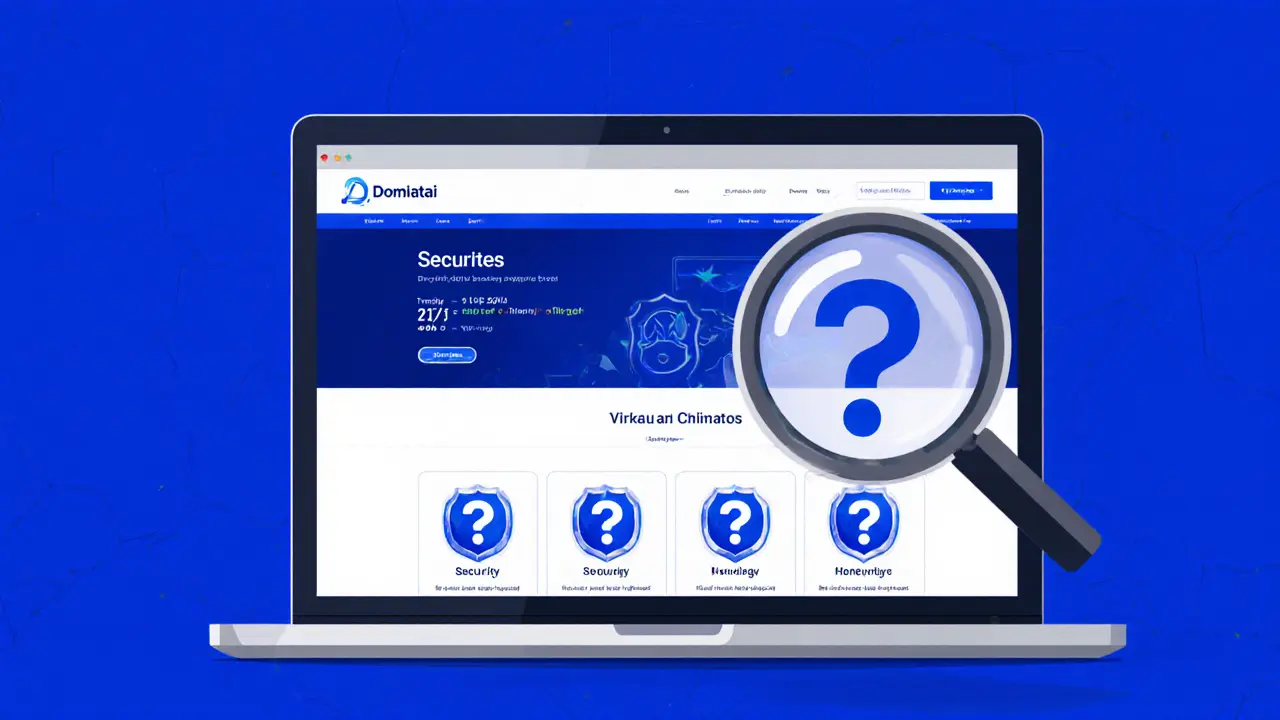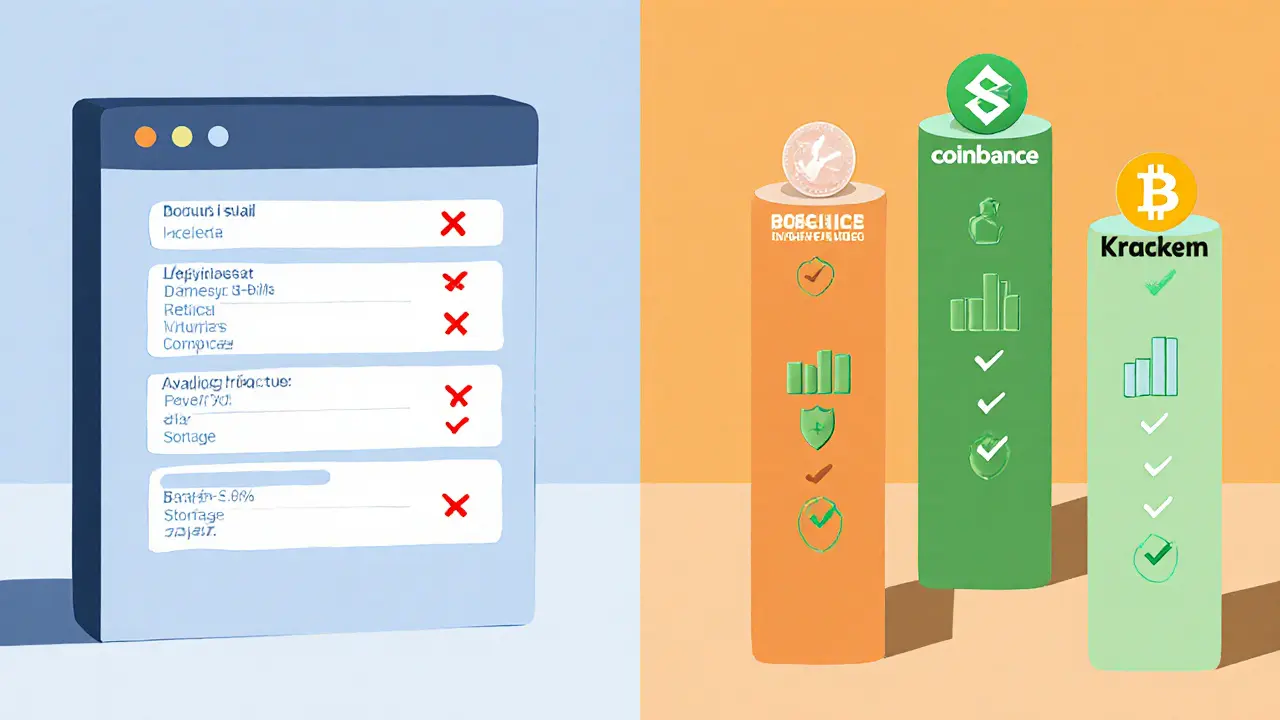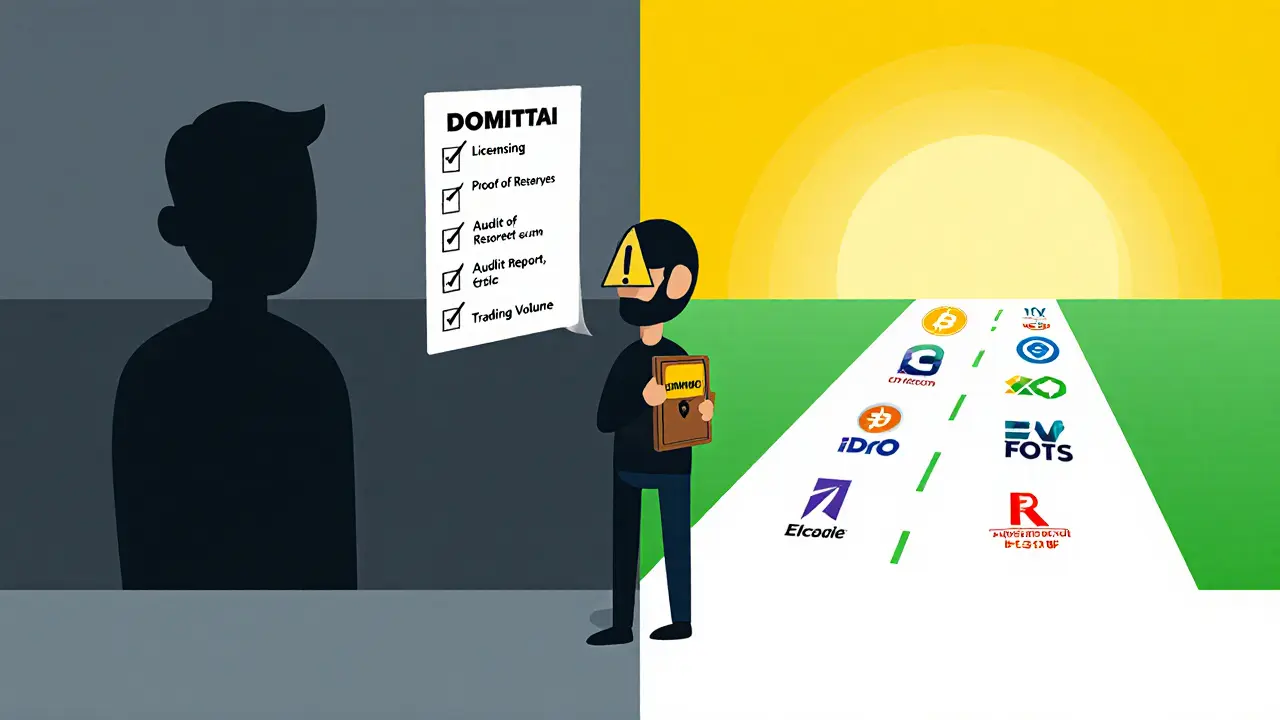Domitai Crypto Exchange Review - Is It Legit or a Scam?
 Mar, 25 2025
Mar, 25 2025
Crypto Exchange Legitimacy Checker
Before depositing funds into a cryptocurrency exchange, verify these essential criteria to avoid scams. This tool helps you evaluate any exchange based on industry-standard due diligence requirements.
Verify Exchange Legitimacy
Enter the exchange name and select which criteria you've verified. Complete at least 3 criteria for an accurate assessment.
How to Verify
- 1 Check licensing with financial regulators
- 2 Search for team information on LinkedIn
- 3 Verify security audits via exchange website
- 4 Check trading volume on CoinMarketCap
- 5 Search user reviews on Trustpilot
Legitimacy Assessment
When you hear the name Domitai a cryptocurrency exchange that claims top‑grade security and 24/7 trading, you might expect a fresh competitor on the market. Yet a deep dive into publicly available data tells a very different story.
Key Takeaways
- Domitai lacks any verifiable licensing, team details, or trading volume data.
- Security claims are generic and have no third‑party audit reports.
- Regulators such as the SEC and the FCA have no record of Domitai.
- Established exchanges like Coinbase, Binance and Kraken publish transparent security metrics.
- Before depositing funds, use a checklist that verifies licensing, proof of reserves, and real‑world security audits.
What We Could (and Could Not) Find About Domitai
Searches across major crypto databases - CoinGecko, CoinMarketCap, and The Block - return zero results for Domitai. No founder bios, no office address, and no regulatory filings appear in public registries. Even the most basic metric, 24‑hour trading volume, is missing.
A handful of comparison sites repeat marketing copy that mentions "offline storage, constant transaction monitoring, and multi‑factor encryption" but provide no links to audit reports, no percentages for cold storage, and no evidence of multi‑factor authentication implementation.
Why Licensing and Regulation Matter
Legitimate exchanges must register with financial watchdogs. In the United States, the SEC oversees securities‑related activities; in the United Kingdom, the FCA does the same for crypto assets deemed securities. No licensing information appears for Domitai, which is a red flag according to industry‑standard due‑diligence checklists.
Regulated platforms also publish a proof of reserves statement, often backed by a SOC 2 audit or a third‑party attestations. Domitai’s pages contain no such documents.
Security Claims vs. Reality
Every reputable exchange details how it protects user funds. For example, Coinbase reports that 99.5% of digital assets are held in cold storage, verified in its 2023 transparency report. Binance publishes a quarterly security audit conducted by a respected firm. Kraken highlights its use of multi‑signature wallets and regular penetration testing.
Domitai’s marketing paragraph merely repeats buzzwords. There is no mention of the proportion of assets stored offline, no list of security partners, and no public incident history. The lack of concrete numbers suggests either extreme secrecy or non‑existence.
How to Spot a Potential Scam Exchange
- Verify Licensing: Check the regulator’s website for a registration number.
- Search for Team Information: Real companies list founders, advisors, and office locations.
- Look for Audit Reports: SOC‑2, ISO‑27001, or independent security audits should be downloadable.
- Check Trading Volume: Use tools like CoinMarketCap’s “exchange volume” chart; a legit platform shows consistent activity.
- Read Community Feedback: Reddit, Trustpilot, or dedicated crypto forums often surface user experiences quickly.
If any of these checkpoints fail, treat the platform with extreme caution.

Comparison Table: Domitai vs. Established Exchanges
| Criteria | Domitai | Coinbase | Binance | Kraken |
|---|---|---|---|---|
| Regulatory License | None publicly listed | US Money Transmitter, EU Crypto-Asset Service Provider | Multiple licences (Malta, Singapore, US) | UK FCA, US FinCEN |
| 24‑h Trading Volume (USD) | Not disclosed | ~$5 B | ~$20 B | ~$2 B |
| Cold‑Storage % | Unspecified | 99.5% (2023 report) | ~70% (self‑reported) | ~95% (2022 audit) |
| Third‑Party Security Audit | None available | SOC‑2, ISO‑27001 | Proof of Reserves (monthly) | SOC‑2, regular pen‑tests |
| User Support Channels | Only a generic email form | Live chat, phone, email | Live chat, ticket system | Live chat, email, phone |
The table highlights that Domitai simply does not provide any of the data that seasoned traders expect. When a platform cannot answer basic transparency questions, the safest move is to keep your funds elsewhere.
Alternatives Worth Considering in 2025
If you are looking for a reliable place to trade Bitcoin, Ethereum, or emerging DeFi tokens, the following exchanges rank highly for security, compliance, and user experience:
- Coinbase - Ideal for beginners and institutions; strong regulatory backing.
- Binance - Massive liquidity, extensive token list, but watch for regional restrictions.
- Kraken - Robust security features, good fiat on‑ramps, and transparent reporting.
- Gemini - US‑focused, NYDFS charter, and regular audits.
All of these platforms publish detailed security whitepapers, proof‑of‑reserves statements, and have active community support channels.
How to Safely Test a New Exchange
Even after choosing a reputable exchange, it’s wise to start with a small amount. Follow these steps:
- Deposit a modest sum (< $100 ) and monitor withdrawal times.
- Enable every security feature: hardware‑wallet 2FA, withdrawal whitelist, and email alerts.
- Confirm the exchange’s address on‑chain using a block explorer after a withdrawal.
- Keep records of all communications and transaction IDs for future reference.
This “test‑and‑verify” approach limits exposure if an unexpected issue arises.
Final Verdict on Domitai
Based on the evidence - or lack thereof - Domitai appears to be an unverified platform with no public licensing, no audit reports, and no disclosed trading data. While we cannot categorically call it a scam without a formal legal finding, the red flags are strong enough that most seasoned traders would avoid depositing any funds.
Stick with exchanges that earn trust through transparency, regulatory compliance, and community validation. Your crypto security depends on it.

Is Domitai a legitimate cryptocurrency exchange?
No public licensing, audit reports, or trading volume data have been found for Domitai. The lack of verifiable information suggests it is not a trustworthy platform.
How can I verify if a crypto exchange is regulated?
Check the regulator’s official website (e.g., SEC, FCA, MAS) for a registration number, and look for the exchange’s compliance page that lists its licences and jurisdictions.
What does “cold storage” mean and why is it important?
Cold storage refers to keeping crypto private keys offline, away from internet‑connected devices. It dramatically reduces the risk of hacks.
Are there any reputable exchanges that don’t require KYC?
Most regulated exchanges now require KYC to meet anti‑money‑laundering rules. Decentralized exchanges (e.g., Uniswap) operate without KYC, but they lack custodial services and consumer protections.
What should I do if I’ve already deposited funds on Domitai?
Attempt a withdrawal immediately. Keep screenshots of the transaction, and consider reporting the address to blockchain analytics services. If the funds don’t move, treat it as a potential loss.